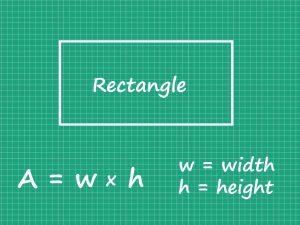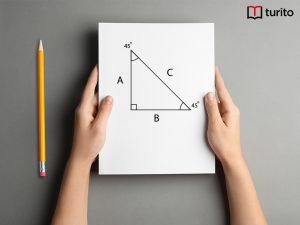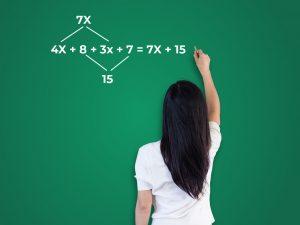Key Concepts
- Use arrays to multiply with 3.
- Use arrays to multiply with 4.
3.2 Apply properties: 3 and 4 as factors
What is meant by factors?
A factor is a number that divides the given number without any remainder.
- The number 1 is the smallest factor of every number.
- Every number will have a minimum of two factors, 1 and the number itself.
- A number that has only two factors, 1 and the number itself, is called a prime number.
What are the factors of 3?
Factors of 3 are, 1 and 3

What are the factors of 4?
Factors of 4 are 1, 2, and 4
4 equals 2 x 2
4 = 22
Real-life applications of factors:
Dividing something into equal pieces, exchanging money, comparing prices, understanding time and making calculations.

3.2.1 Use arrays to multiply with 3
Example1:
Ria went to a playground. She arranged 3 rows of balls in the playground. There are 5 balls in each row. How many balls did Ria arrange?

Find 3 x 5
Solution:
Step1: Make an array for each multiplication sentence.

3 x 5 is 3 rows of 5. That is 2 fives plus one more five.
Step2 : Multiply 2 x 5=10
Step3 : 1 x 5 = 5.
Step4 : 10+5 = 15.
Step5 : Multiply 3 x 5 =15
Ria arranged 15 balls.
Example2:
Steven arranged 3 rows of strawberries in a plate. He put 4 strawberries in each row. How many strawberries did Steven arrange in the plate?

Find 3 x 4.
Solution:
Step1: Make an array for each multiplication sentence.

3 x 4 is 3 rows of 4. That is 2 fours plus one more four.
Step2: Multiply 2 x 4=8.
Step3 : 1 x 4 = 4.
Step4 : 8+4 = 12.
Step5 : Multiply 3 x 4 =12.
Steven arranged 12 strawberries.
3. 2. 2 Use arrays to multiply with 4
Example1:
Michael invited some of his friends to his house. He arranged 4 rows of cupcakes on the table for his friends. He put 5 cupcakes in each row. How many cupcakes did he arrange on the table?

Find 4 x 5
Solution:
Step1: Make an array for each multiplication sentence.

4 x 5 is 4 rows of 5
That is 2 fives plus 2 fives
Step2: Multiply 2 x 5 = 10
Step3: Add 10 + 10 = 20
So, 4 x 5 = 20
The boy arranged 20 cupcakes.
Example2:
John arranged 4 rows of chairs for a meeting. He put 4 chairs in each row. How many chairs did John arrange?

Solution:
Step1: Make an array for each multiplication sentence.

4 x 4 is 4 rows of 4.
That is 2 fours plus 2 fours.
Step2: Multiply 2 x 4 = 8
Step3: Add 8 + 8 = 16
So, 4 x 4 = 16
John arranged 16 chairs for the meeting.
Exercise:
1. Find 4 x 6

2. Multiply the following:

3. Match the following:

4. Chrissy arranged 3 rows of plants in her garden. She put 8 plants in each row. How many plants did Chrissy arrange?
5. Fill in the blanks:
a. 3 x 5=_
b. 4x_= 16
c. 3×8=_
d. 4x = 28
6. David arranged 3 rows of bananas. He put 4 bananas in each row. How many bananas did David arrange?
7. Ria saw a goat farm which has 3 pens. Each pen has 5 goats. Find the number of goats on the farm.
8. Steven walks 4 miles each day. How many miles does Steven walk in one week?
Concept map:

Related topics
Addition and Multiplication Using Counters & Bar-Diagrams
Introduction: We can find the solution to the word problem by solving it. Here, in this topic, we can use 3 methods to find the solution. 1. Add using counters 2. Use factors to get the product 3. Write equations to find the unknown. Addition Equation: 8+8+8 =? Multiplication equation: 3×8=? Example 1: Andrew has […]
Read More >>Dilation: Definitions, Characteristics, and Similarities
Understanding Dilation A dilation is a transformation that produces an image that is of the same shape and different sizes. Dilation that creates a larger image is called enlargement. Describing Dilation Dilation of Scale Factor 2 The following figure undergoes a dilation with a scale factor of 2 giving an image A’ (2, 4), B’ […]
Read More >>How to Write and Interpret Numerical Expressions?
Write numerical expressions What is the Meaning of Numerical Expression? A numerical expression is a combination of numbers and integers using basic operations such as addition, subtraction, multiplication, or division. The word PEMDAS stands for: P → Parentheses E → Exponents M → Multiplication D → Division A → Addition S → Subtraction Some examples […]
Read More >>System of Linear Inequalities and Equations
Introduction: Systems of Linear Inequalities: A system of linear inequalities is a set of two or more linear inequalities in the same variables. The following example illustrates this, y < x + 2…………..Inequality 1 y ≥ 2x − 1…………Inequality 2 Solution of a System of Linear Inequalities: A solution of a system of linear inequalities […]
Read More >>Other topics











Comments: